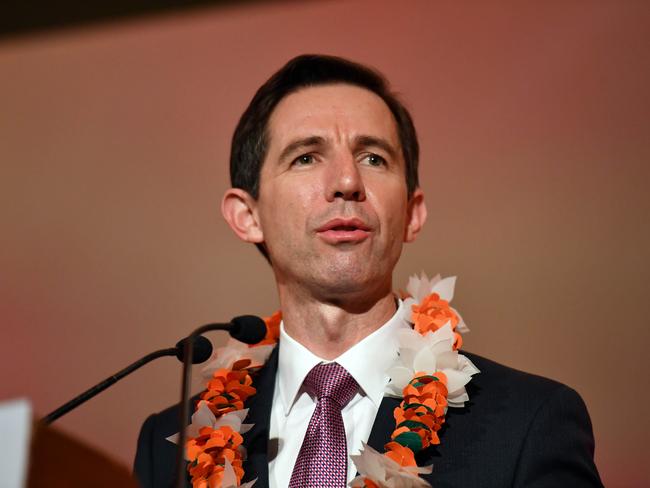Budget 2017: University funding reportedly to be cut by hundreds of millions
UNIVERSITY funding will reportedly be slashed by hundreds of millions of dollars in the Budget with students forecast to suffer.

NSW
Don't miss out on the headlines from NSW. Followed categories will be added to My News.
THE Turnbull government will shelve controversial plans to deregulate the country’s universities, instead forcing students to pay a greater proportion of the cost of their degrees as taxpayer funded loans explode to more than $52 billion.
Education Minister Simon Birmingham tonight briefed university leaders on the budget plan, which is intended to blunt Labor’s damaging political attack that the government is creating $100,000 degrees and discouraging students from study.
“I guarantee that students will not pay a cent upfront and no longer face any form of fee-deregulation,” Senator Birmingham said.
But students are already threatening mass protests at the changes, which the National Union of Students said were “an attack on the nation’s future”.

“The Liberal’s are on course to present another horror budget which leaves students no choice but to respond with demonstrations and protests,” NUS president Sophie Johnston said.
Students will have to pay an average of 46 per cent of the cost of their study by 2021, up from 42 per cent currently, while public study loans will start to be repaid once they earn more than $42,000 annually.
Currently that repayment threshold is $54,000, with the government reaching an agreement with Labor to lower it to $50,000.
The repayment threshold in Britain is around $30,000, while it is as low as $19,000 in New Zealand.
Total debt, under the Higher Education Loan Program, stands at over $52bn, is 12 per cent of total government debts.
The high repayment threshold, and an exploding number of enrolments after the former Labor government uncapped the number of students universities can enrol, has created fears a quarter of that money will never be repaid.
But the interest rate on that repayment will drop from two per cent to one per cent.
Universities will no longer face the 20 per cent funding cut first proposed by the Abbott government, but instead be subject to a 2.5 per cent efficiency dividend over the next two years.

Senator Birmingham tonight said after “three years of debate and unlegislated reforms we need to chart a path to funding certainty, system sustainability and greater transparency and accountability to students and taxpayers”.
“This efficiency dividend applies to this stream of revenue only and is not applicable to research funding or other taxpayer contributions,” he said.
“The maximum any student will pay for a four year Commonwealth-supported course is $50,000.
“The most expensive course — a six year medical degree that brings substantial private benefits — will result in maximum student fees of $75,000, while taxpayers will pay $137,300 in fees.”
Opposition Leader Bill Shorten took a pre-emptive swing at the changes, this morning responding to speculation about universities cuts.
“Mr Turnbull should not look at slugging university students in Australia to help pay for his unfunded corporate tax giveaway to his rich mates at the top end of town,” he said.
Other changes to university funding includes tying 7.5 per cent of money under the Commonwealth Grant Scheme — which subsidises study — to a performance and transparency requirements for admissions.
That comes after widespread concerns universities were manipulating entry requirements to enrol the maximum number of students into courses.
But universities will also be able to enrol students studying diplomas, advanced diplomas and associate degrees through the grant scheme, which they have not been able to do in the past.
“To be eligible for funding under our reforms the student must not have completed another higher education qualification, and the course must respond to industry needs and fully articulate into bachelor programs,” Senator Birmingham will say.
Originally published as Budget 2017: University funding reportedly to be cut by hundreds of millions


